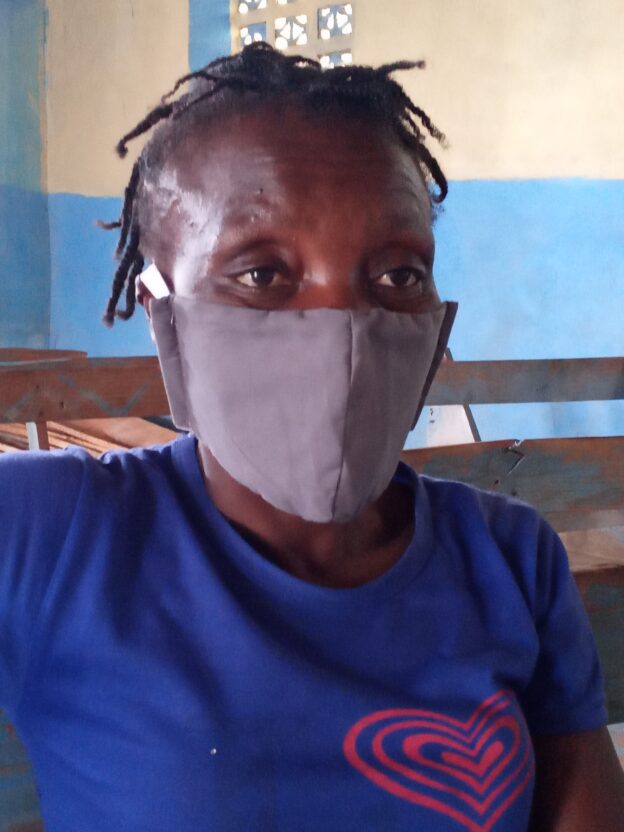Marie Yolène graduated from the CLM program on May 19th, 2020. She was born and raised near Nan Sab, a remote rural market in the mountains of southern Mayisad. That is where she had her first five children. Their father had another wife, and he had children with the other woman as well. She, and not Marie Yolène, was his principal wife, or madanm marye.
She moved from Nan Sab to the area around Tè Kann, in Tomond, about six years ago. Her youngest son was a sickly boy, always underweight. She left Nan Sab to look for care for him. The area around Nan Sab has no medical facilities, only traditional healers. Marie Yolène had spent everything she had on the folk remedies they offered, so she decided to try to see a doctor. Tè Kann is much closer to clinics than Nan Sab.
She eventually moved in with her current partner. They have a child together — her sixth — and they’ve adopted one of her grandchildren as well. As was the case with her first relationship, she is this new partner’s second wife. But she doesn’t complain about it. “He built me a shack on land that belongs to one of his older children. He didn’t want me to have to live on his wife’s land. She’s okay most of the time, but sometimes she refuses to speak to me. Lately she’s been saying that he’s started to spend two or three days with me at a time because he’s sees that I have something to offer now.”
When Marie Yolène joined the CLM program, things were difficult. She and her children weren’t able to eat even a single meal every day. She couldn’t send them to school. Her older children’s father wouldn’t send her food or money. If the kids wanted anything from him, they had to make the long hike from Tè Kann to Nan Sab to see him in person, and they didn’t like to go because his wife could be unkind. It was when she joined CLM that she was able to start sending them. Her 13-year-old boy was in 2nd grade when the school year was interrupted by COVID-19. “He loves school and he does well. He could be so much farther along if I had been able to send him when he was younger.”
She chose goats and a pig her two enterprises, and she has managed to grow both. The two goats CLM gave her are now five. She chose to fatten a boar rather than raising a sow for the piglets it would bear her, and her boar has flourished. She was even able to buy a second small one. And though that second one died, she was able to make enough from the sale of the meat to rent a plot of farm land for two years. She’s already planted her first crop of pigeon peas and spring beans, and she’s preparing the rest of the land to plant millet. Millet was a staple in the region until a couple of years ago, when two consecutive crops were destroyed by disease. But she sees neighbors cautiously trying to plant it again, so she plans on trying as well.
Like all CLM members, she is part of a Village Savings and Loan Association. It allows her to make weekly deposits over the course of a year and then collect the total as a lump sum. Just as importantly, it gives her access to small loans. She borrowed 5000 gourds to establish a small business. She buys charcoal from the farmers who make it in the mountains around where she lives, and then she carries it by the sack down to lowland markets in Difayi and Domon. It has been a success. She was able to repay her loan and then continue, and even grow, the business with her own funds.
She is happy too about the new way that her neighbors look at her. Few would speak to her when she first moved into the area. Even borrowing small sums was hard back then. “They’d always ask me where I was going to get the money to pay them back. Now they will lend me anything I ask for because they see what I’m capable of. CLM has helped me become a big deal.”
Her plan right now is to work hard in her fields, keep up her commerce, and take good care of her livestock. “The animals are important. They’re the club I can use to defend myself. They can help me send the children too school every year.”
